Cancer Center Expands Molecular Tumor Board
The UArizona Cancer Center’s molecular tumor board, led by Early Phase Trials team leader Dr. Hani Babiker, is broadening its focus to include more types of tumors to deliver personalized cancer care through precision medicine.
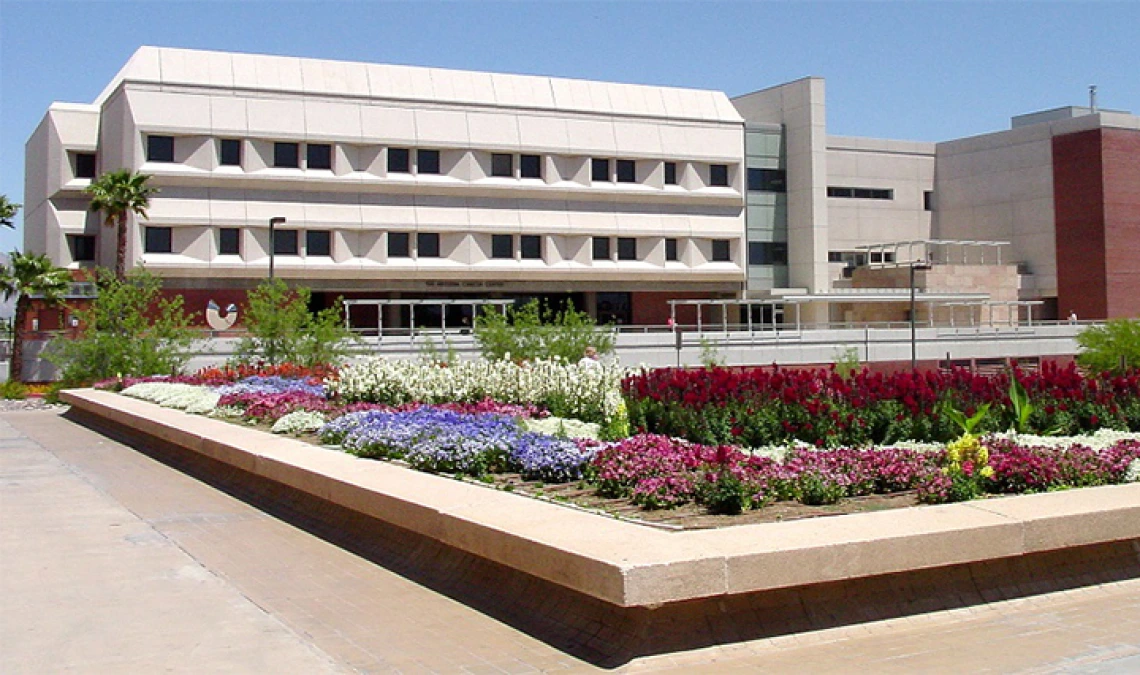

Hani Babiker, MD
The University of Arizona Cancer Center’s molecular tumor board has new leadership and an expanded approach to discovering novel treatments for rare and difficult-to-treat tumors.
The molecular tumor board is a team of multidisciplinary experts, including clinical and basic scientists, and bioinformaticians. They meet regularly to discuss unique cases in which a patient has a rare tumor or when there is not a safe and obvious treatment option. The aim is to bring a wealth of expertise to the table for a collaborative approach to delivering personalized cancer care through precision medicine.
Hani Babiker, MD, director of phase I clinical trials, is the newest chair for the board’s leadership committee. Dr. Babiker is joined on the committee by Michael Hammer, PhD, Ryan Sprissler, PhD, Abhijeet Kumar, MD, and Hina Arif-Tiwari, MD.
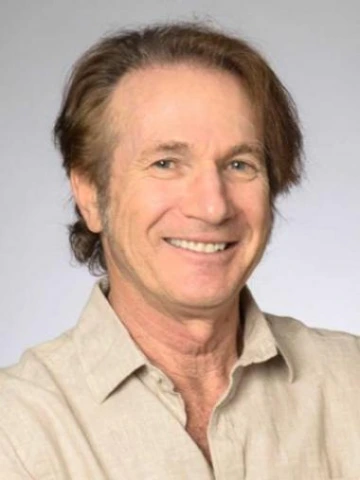
Michael Hammer, PhD
“I am excited and encouraged by the amazing support we have received from the Cancer Center leadership to move this forward,” Dr. Babiker said. “Our center is in a wonderful position to lead this initiative for personalized medicine with the molecular tumor board. We believe this will help many of our patients and also those from outside the center who are being referred to us.”
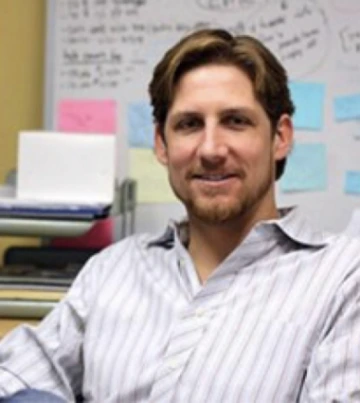
Ryan Sprissler, PhD
While the Cancer Center’s molecular tumor board has been in place since it was first piloted in 2016, Dr. Babiker and the committee are expanding the criteria for which they select cases. Previously, rare tumors have been the focus of discussion by the board. Now with a revamped phase I clinical trials program and promising research on novel targeted therapies, the board will begin considering cases on all types of tumors. Particular attention will be given to refractory tumors, or those that are not responding to current treatments.
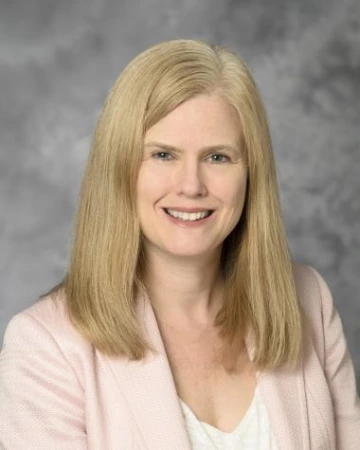
Julie Bauman Headshot
“We can help patients in truly personalized ways,” said Julie E. Bauman, Deputy Director of the Cancer Center. “When standard treatments are not working on a patient’s cancer, we can possibly identify a drug that will more specifically kill the cancer. This molecular medicine, or precision medicine, approach gives us the ability to target the unique mutations that the cancer needs to survive.”
Understanding the specific characteristics of a patient’s tumor is paramount to deciding the path of treatment. At the heart of this work is the UArizona Genetics Core (UAGC), directed by Dr. Hammer and managed by Dr. Sprissler. The UAGC is an on-campus core facility under the office of Research Innovation & Impact (RII) that helps researchers conduct specialized genomic analyses.
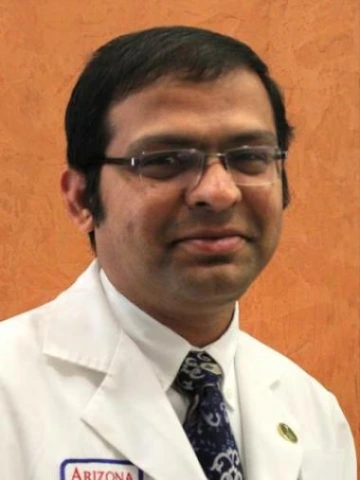
Abhijeet Kumar, MD
Certified by the Clinical Laboratory Improvement Amendments (CLIA), the UAGC clinical unit is capable of taking tissue samples and genetically sequencing both the healthy DNA of a patient as well as the DNA specific to a patient’s tumor. Known as whole exome sequencing (WES), this complex molecular analysis can identify mutations that are unique only to the cancer cells and may become valuable therapeutic targets.
In June, members of the UAGC, including Dr. Sprissler, the first author, published research on their work with WES. In their conclusions, they wrote, “WES of rare tumors provides information that is outside the current search space of gene panels, but may ultimately provide clinically useful data to be used now or in the future.”
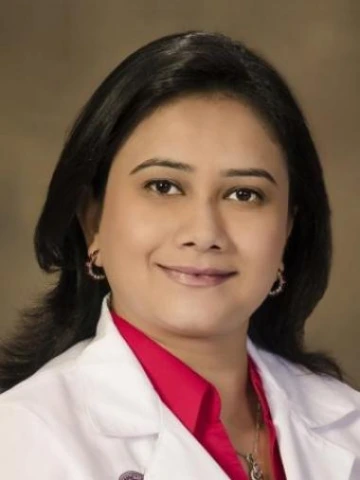
Hina Arif-Tiwari, MD
The authors added: “As shown in our study, rare tumor patients may disproportionately benefit from both tumor-germline and WES approaches to potentially allow for better treatment options via future tumor genome-guided discoveries and therapies.”
Based on the specific mutation(s) discovered through the analyses, clinicians may be able to use the information to find a drug that could be successful in treating that mutation.
“The sequencing analyses performed at the UAGC help us identify whether a mutation of the patient’s cancer is a driver or a passenger,” Dr. Bauman said. “If it’s a passenger, that means the mutation is not the cause or reason the cancer is present, so we do not need to target that mutation. However, if the analyses suggest the mutation is a driver – the reason the cancer is there – then that is what we want to target; we want to find a drug that can target that specific mutation and shut down the cancer.”
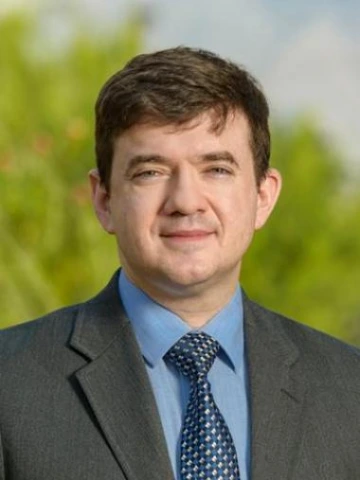
Daniel O. Persky, MD
Daniel O. Persky, MD, Associate Director of Clinical Investigations for the Cancer Center said: “This is a bedside to bench and back to bedside process. We can help patients in much more sophisticated ways than we previously could.”
An additional benefit of the molecular tumor board is that it is an educational opportunity for all involved. Physicians, researchers and scientists from all disciplines are able to see examples of how patient’s tumors were presenting before treatment, how the functional genomics assessment process works and how the cancer did or did not respond to a particular treatment.
“It is amazing to have this opportunity right here at our own institution, where all of these experts can collaborate,” Dr. Babiker said. “This comes at a time when personalized medicine is increasingly important because we now have more drugs that can target these specific mutations. The cases we review as a molecular tumor board will help us design more phase I clinical trials, which will hopefully benefit even more patients in the future.”



